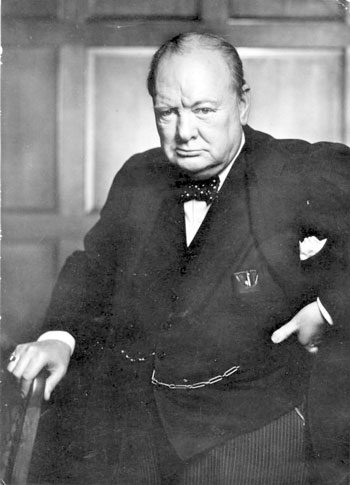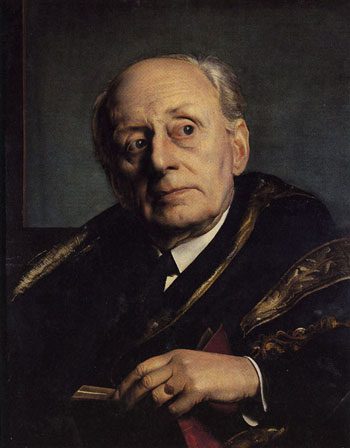
On December 7, 1941, Winston Churchill heard the news that America had been attacked at Pearl Harbor and that Britain was no longer alone in the war. He immediately decided to visit President Roosevelt in Washington in order to coordinate their attack and defense strategy.1 Arriving in Washington after nearly 10 days at sea, the prime minister met with the president several times and, on December 26, addressed a joint session of Congress. Describing the scene, Lord Moran, his physician who had crossed the Atlantic with him, noted in his memoirs that it was a great scene, with senators, congressmen, and students cheering and waving their papers until the prime minister went out.2
At 10am the next day, after a stroll through the gardens, Lord Moran received an urgent message to see the prime minister. He found him in bed looking worried. It had been a warm night, and, as Churchill had to use considerable force to open the window, he became short of breath and noticed a dull pain “over his heart” going down the left arm. It did not last very long, but it had never happened before, and he wondered what it was.
In his book Lord Moran describes that there was not much to be found when he examined the heart, but as he was listening he realized that he had to make a quick decision. He had no doubt that the symptoms were those of coronary insufficiency, regardless of what the electrocardiogram would show. As the treatment at the time was at least six weeks bed rest, he considered the disastrous consequences on morale and on the conduct of the war if it were to be announced at this critical moment that the prime minister of Britain was an invalid with a crippled heart and a doubtful future. Yet on the other hand, if he did nothing and Churchill had another attack—or worse, a fatal seizure—the world would undoubtedly say that he had killed him by not insisting on rest.

Pietro Annigoni (1910–1988)
Oil painting
These thoughts raced through his mind as he listened to the heart. Then, as he took the stethoscope out of his ears, he told Churchill that there was nothing serious and that he had been overdoing things. As he left he reflected that, while he did not like this situation, he would tell no one, determined to take Churchill to Sir John Parkinson, the famous British cardiologist, on his return to London. This happened in 1941; Churchill suffered no recurrence of his chest pain and, despite having several strokes, remained active in public life for many years, dying in 1965 at the age of 91.
Notes
- Winston Churchill. The Second World War: The Grand Alliance, vol.3 (Boston: Houghton Mifflin Company), 1950, 605–673, 773.
- Charles McMoran Wilson Moran. Churchill: Taken from the Diaries of Lord Moran, 17.

Leave a Reply